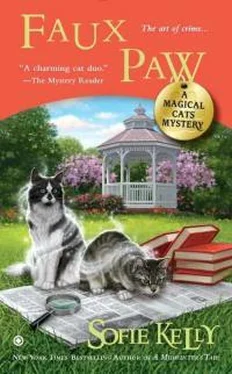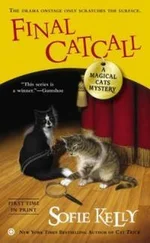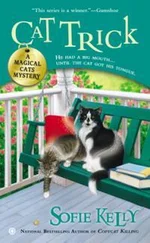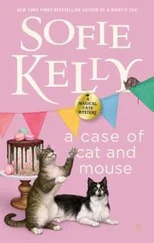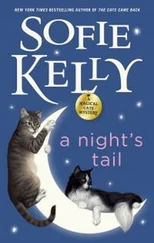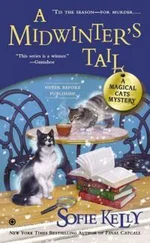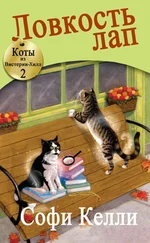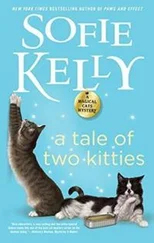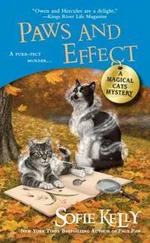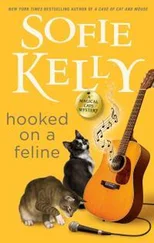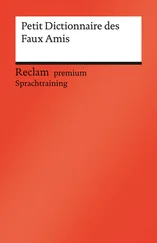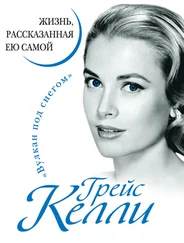I thought of Ruby’s oversize pop-art acrylic renderings of Owen and Hercules. I couldn’t explain it, but she’d managed to capture Owen’s mischievous streak and Herc’s sensitive side with her vivid colors. “It doesn’t sound crazy to me,” I said.
“She painted this barn—it was half falling down—and I kid you not, when she showed it to me I got a little choked up just looking at it. But she had another one she’d done of this old farmhouse, and be damned, but the feeling I got was that I wanted to live in the thing.” He shook his head.
“Had she ever exhibited her work?”
“Somehow I don’t think so. Margo was her own worst critic.”
I exhaled slowly. “I know she could be”—I hesitated, looking for the right word—“challenging. But she was very encouraging to the local artists who had pieces in the show.”
I remembered the smile on Nic Sutton’s face after he’d come out of his meeting with Margo, and how Ruby had been literally bouncing with enthusiasm after hers.
“Lita said Margo didn’t have any family. Is she right?” I felt a twinge of guilt that it had taken me until now to ask the question.
“She is,” he said, moving into the passing lane and accelerating to pass a high-sided furniture delivery truck. “She told me once that her parents had died when she was a child and she’d been raised by her grandmother.” His gaze flicked over to me for a moment. “I think that’s why she was so exacting. Her grandmother was a doctor in an era when there weren’t that many women doctors. I got the impression the woman had very high standards for Margo.”
He looked at me again as the sleek silver Mercedes hugged a wide turn of the highway. “Margo has”—he paused for a moment—“had a degree in molecular biology. I think studying art history was a huge act of rebellion for her.”
“I didn’t know that,” I said.
Gavin smiled. “I know. ‘Rebellious’ isn’t really the first word you’d think of to describe her.”
I couldn’t help smiling myself. “No, it isn’t,” I agreed. Knowing a bit of Margo’s history helped me understand her a little more. I found myself wishing I’d known all of this before she’d died.
“What about you, Kathleen?” Gavin asked, his eyes fixed straight ahead as he moved into the left lane to pass a slow-moving minivan and then back to the right to get by a tractor-trailer. He drove the way he did everything else: with a confidence that teetered on the edge of arrogance. I felt safe—he wasn’t taking stupid chances, and he was a good driver. It reminded me of driving with Marcus, a comparison neither man would probably have liked.
“What do you mean?” I said.
“Do you have a rebellious streak?”
I couldn’t help laughing.
“What’s so funny?” Gavin asked, his eyes gleaming with curiosity.
I put one hand flat on my chest and took a moment to get my breath. “I’m sorry,” I said. “It’s just that ‘rebellious’ is pretty much the last word anyone would ever use to describe me, either.” I cocked an eyebrow at him. “What about you?”
“Rebellious is my middle name,” he teased.
“So, what or who were you rebelling against?” I asked, shifting sideways a little under my seat belt so I could watch his face.
“Three generations of Solomon men who always worked in the paper mill, married girls from the neighborhood and turned out a yard full of babies, and a high school that said people from my side of the river didn’t go to college.” He shrugged, and the bad-boy smile seemed a little forced. “You might say that bringing you along to meet Big Jule was an act of rebellion.” He shot me a quick glance. “I saw Lita yesterday and I told her what we were doing today.” The smile got wider and more genuine, it seemed to me. “She said I was poking the bear with a stick.”
Clearly Marcus was the bear.
Lita wasn’t the kind of person to judge other people’s choices; she was involved with Burtis Chapman after all, and he had a reputation. But when she did share her opinion, she wasn’t shy about it. I was guessing she’d done more than just compare Marcus to an angry bear. Whatever she’d said, it was none of my business.
“That’s because Lita is immune to your charm,” I said lightly.
“I’m like a bottle of fine wine,” Gavin said, moving the car into the right lane so we could take the exit that would take us downtown. “You may not be captivated at the first taste, but after a little time the nuances will win you over.”
I waited for a moment and then looked pointedly at my feet. “Good thing I wore boots,” I said.
Gavin frowned. “Why?” he asked.
“Because my shoes would have been ruined by that load of fertilizer you’re spreading around.”
He gave a snort of laughter. “Busted,” he said with a grin. “And I worked hard on that line.”
Gavin had a brief meeting scheduled at the Walker Art Center, so I looked around the pop-art exhibition while I waited for him, thinking Ruby’s portraits of Owen and Hercules would have fit right in with the artwork. My thoughts kept wandering to our lunch with Julian McCrea.
I hadn’t been able to find anything more than what Gavin had told me about the man through my usual online sources, so I’d ended up calling Lise, in Boston. Her expertise was music, but I knew she had contacts in the art world. Unfortunately, she didn’t know anything about McCrea.
“Do I want to know why you’re asking about this Julian McCrea person?” she’d asked.
I’d stretched my feet out on the footstool, and Hercules, who was sprawled on my lap, had moved his head so it was resting against my arm and closed his green eyes. “Remember that exhibit I told you was coming to the library?” I’d said.
“The centerpiece was an early Sam Weston drawing,” she immediately said.
I’d exhaled softly. “It was stolen.”
“What?”
“It looks as though the thief came in through a skylight in the roof I didn’t even know would open.”
“You’re not serious.”
I pictured her, elbows propped on her kitchen table, making a face at my words. “I wish I wasn’t.”
“I’m beginning to think that Mayville Heights is the crime capital of the Midwest,” she’d said. “You’re okay, right?”
“I’m fine,” I had said, shifting my arm a little, which got me a one-eyed glare from Hercules. It evaporated once I began to stroke his ebony fur. I’d decided not to tell Lise about Margo or how the brass statue she’d sent me had been used to kill her.
“That Weston drawing could be worth quite a lot of money,” Lise had said. “Though actually, some experts believe it’s not Weston’s work.”
Hercules had been purring, a low rumble coming from his chest. “If it’s not Weston’s work, then how can it be worth a lot of money?” I asked.
“Because some experts think the drawing was done by Weston’s first wife. She was Native American.”
“Do you know anyone I could talk to who could tell me more?”
“I can tell you more.”
“I didn’t know you were interested in nineteenth-century American art.”
“I’m interested in lots of things,” she’d said, and I had felt her smile through the phone. “Did I ever introduce you to Edward Mato?”
Hercules had lifted his head and looked at me. My hand had stopped moving. “I don’t think so.”
“Back about 1990 the federal government passed the Native American Graves Protection and Repatriation Act—as a way of hopefully returning remains and artifacts buried with them to the Native American tribes they belonged to. Ed’s ancestry is Sioux and he’s an expert on native burial rituals.”
“What does that have to do with the Weston drawing?” I’d asked.
Читать дальше
